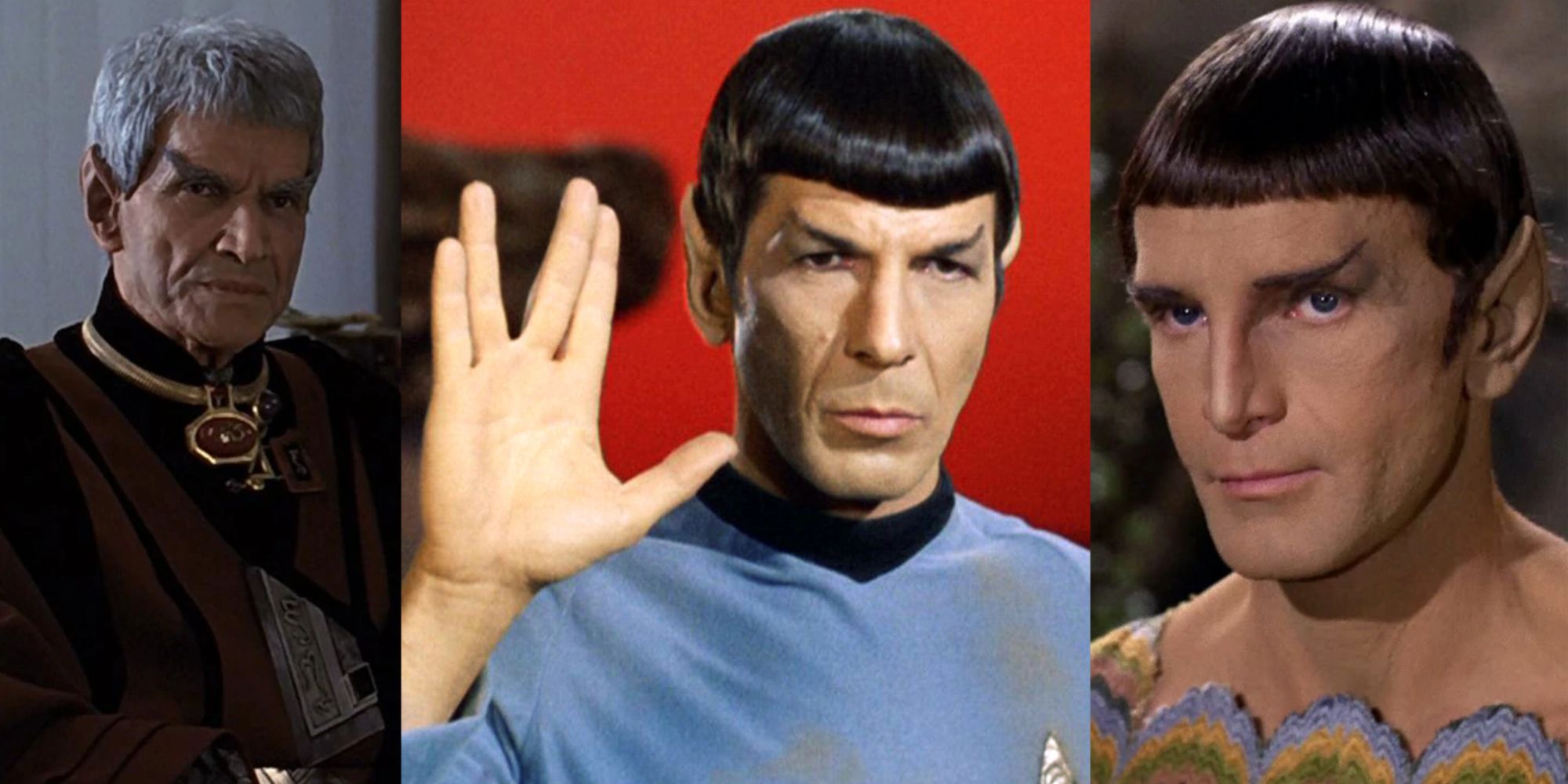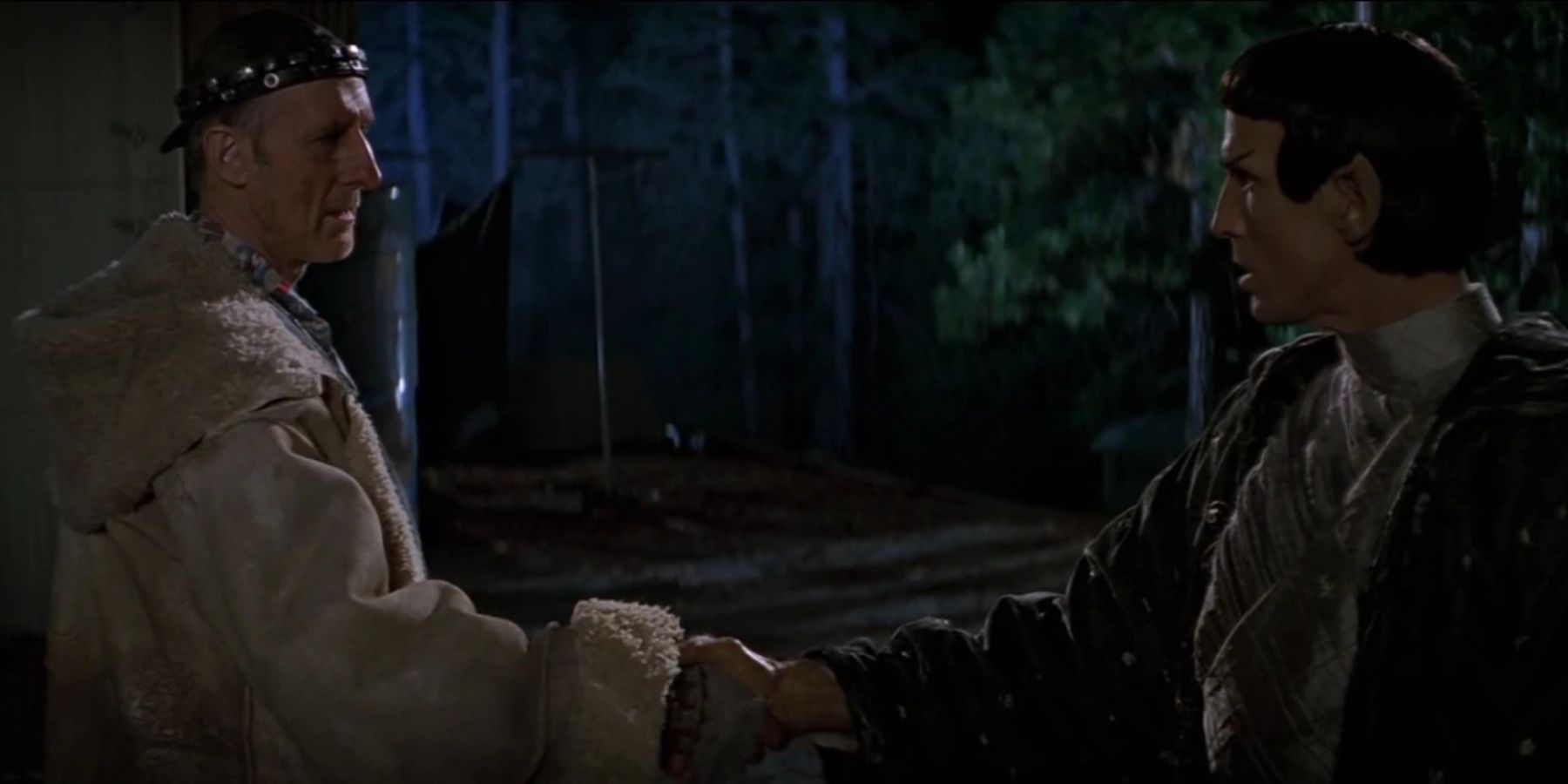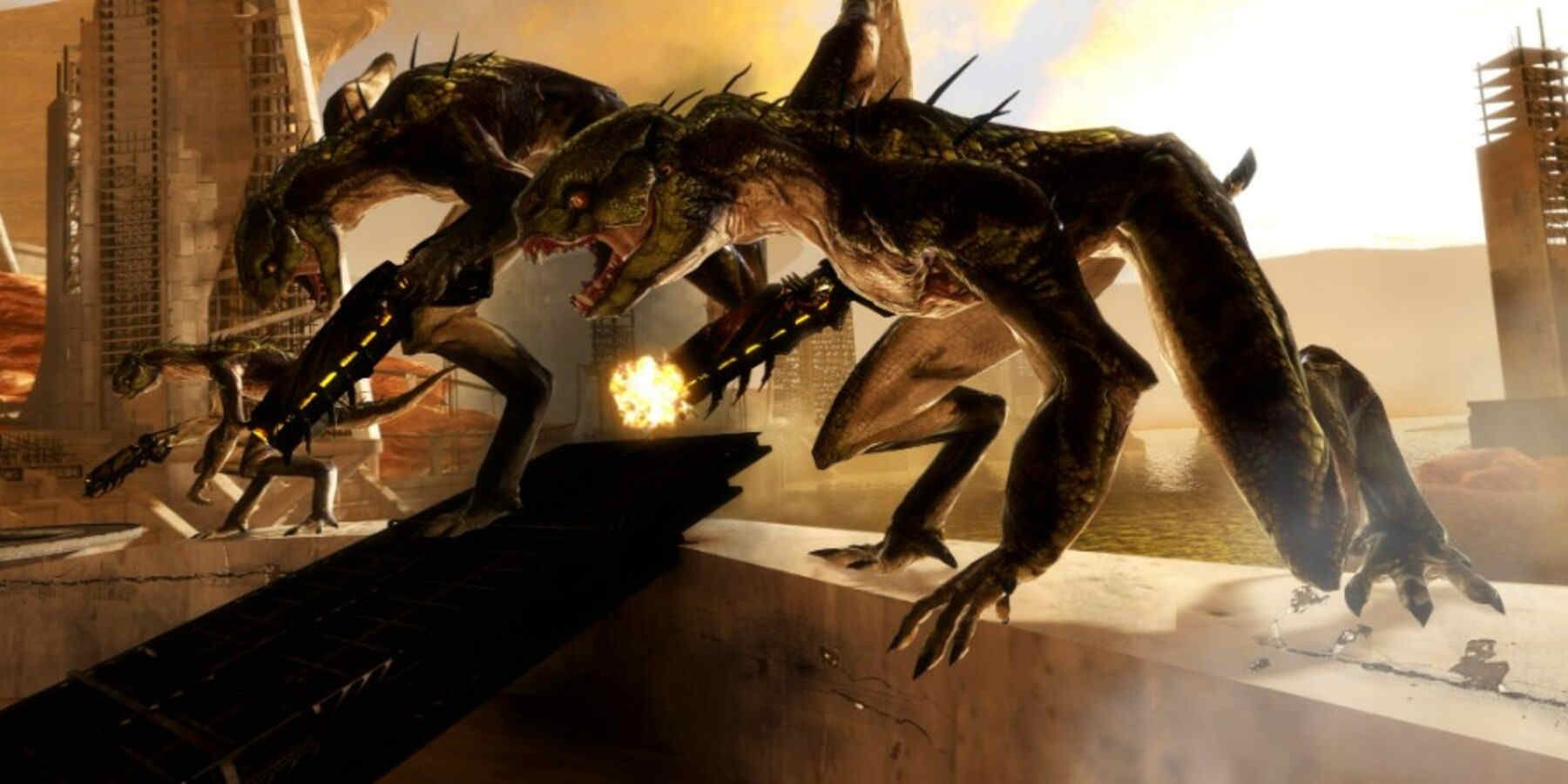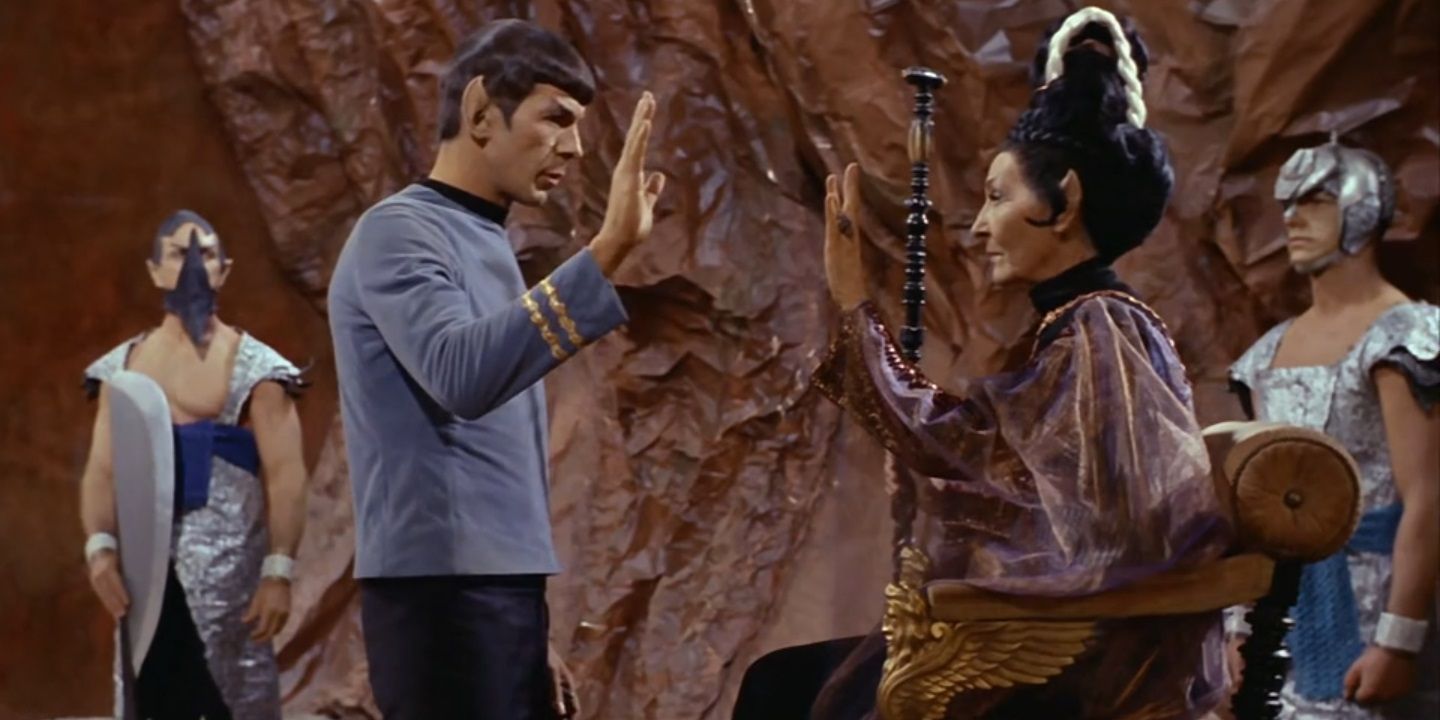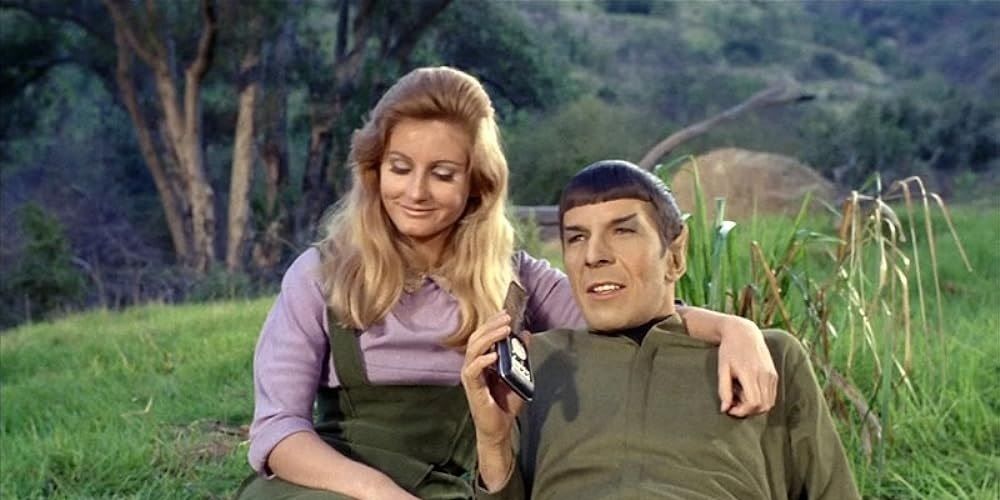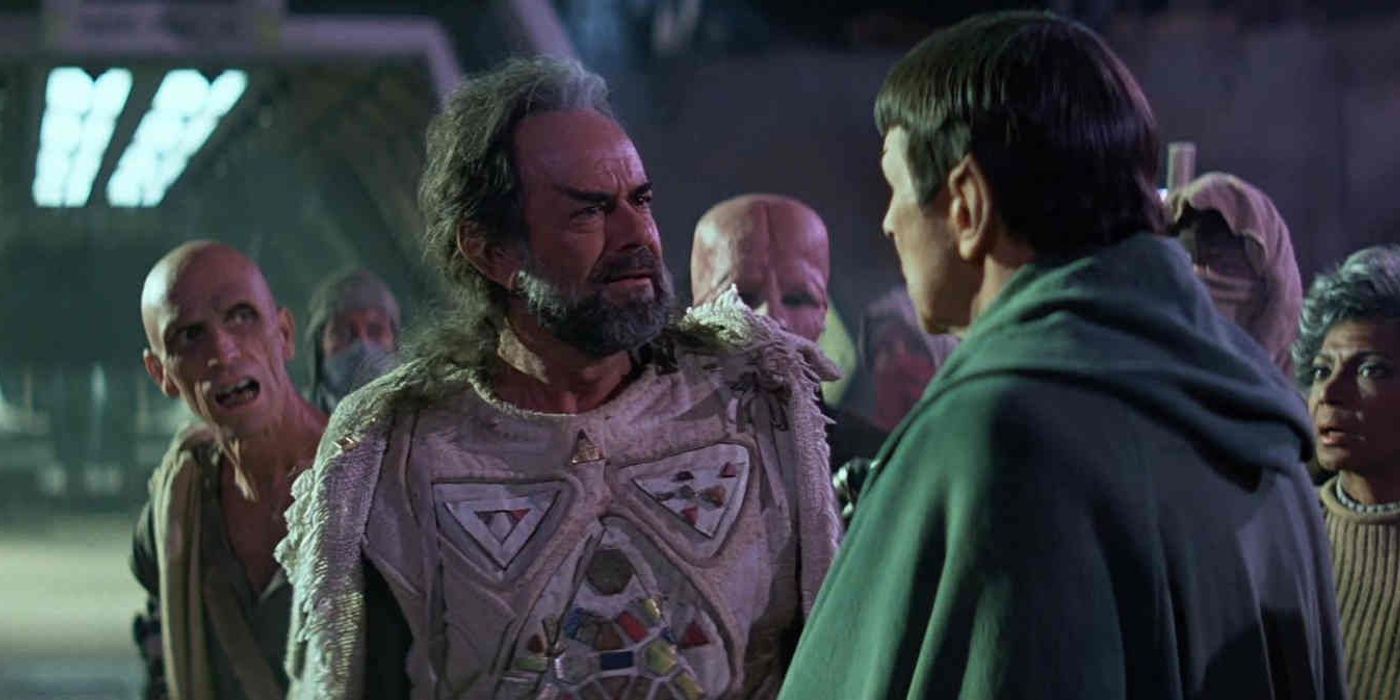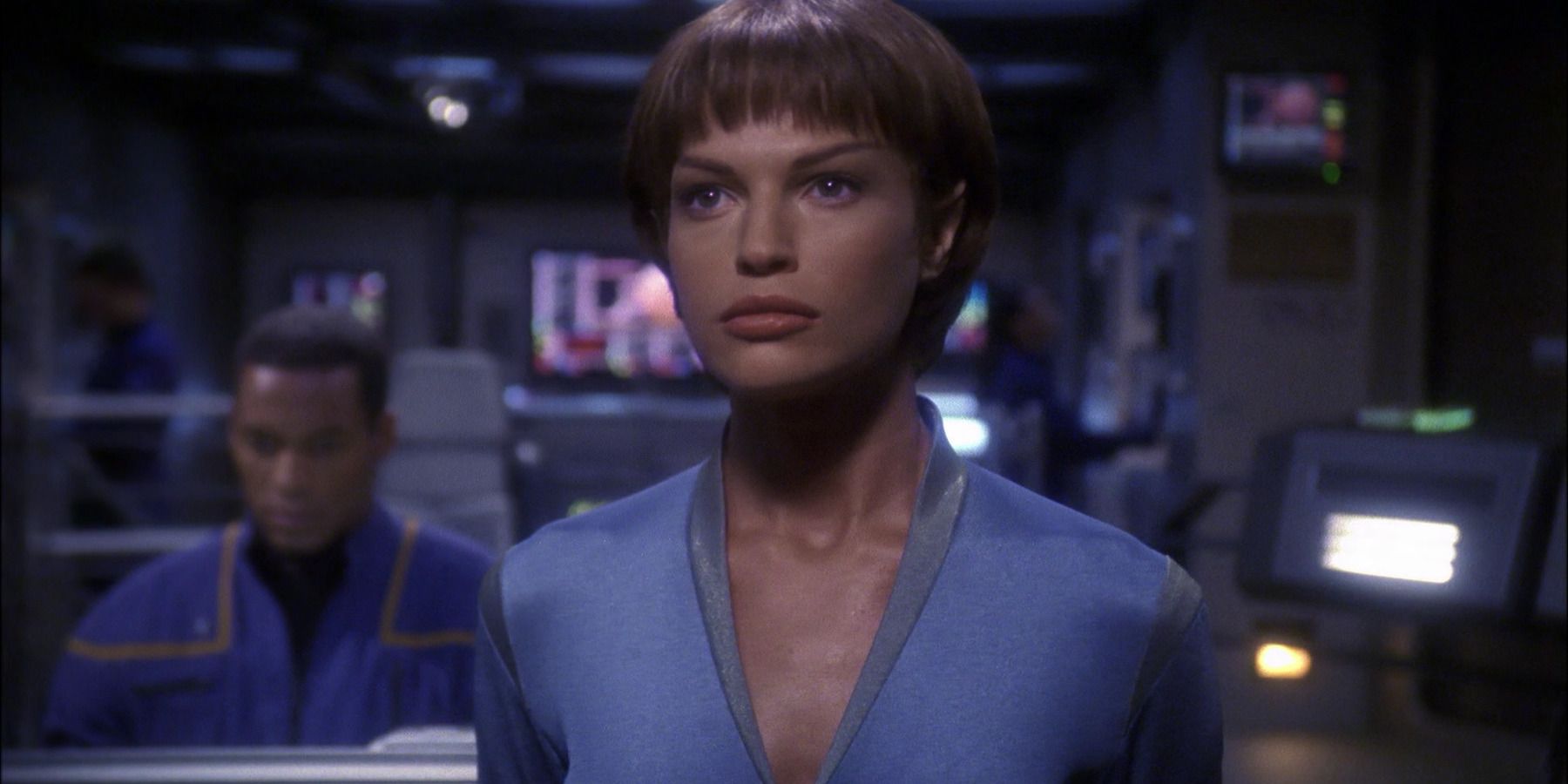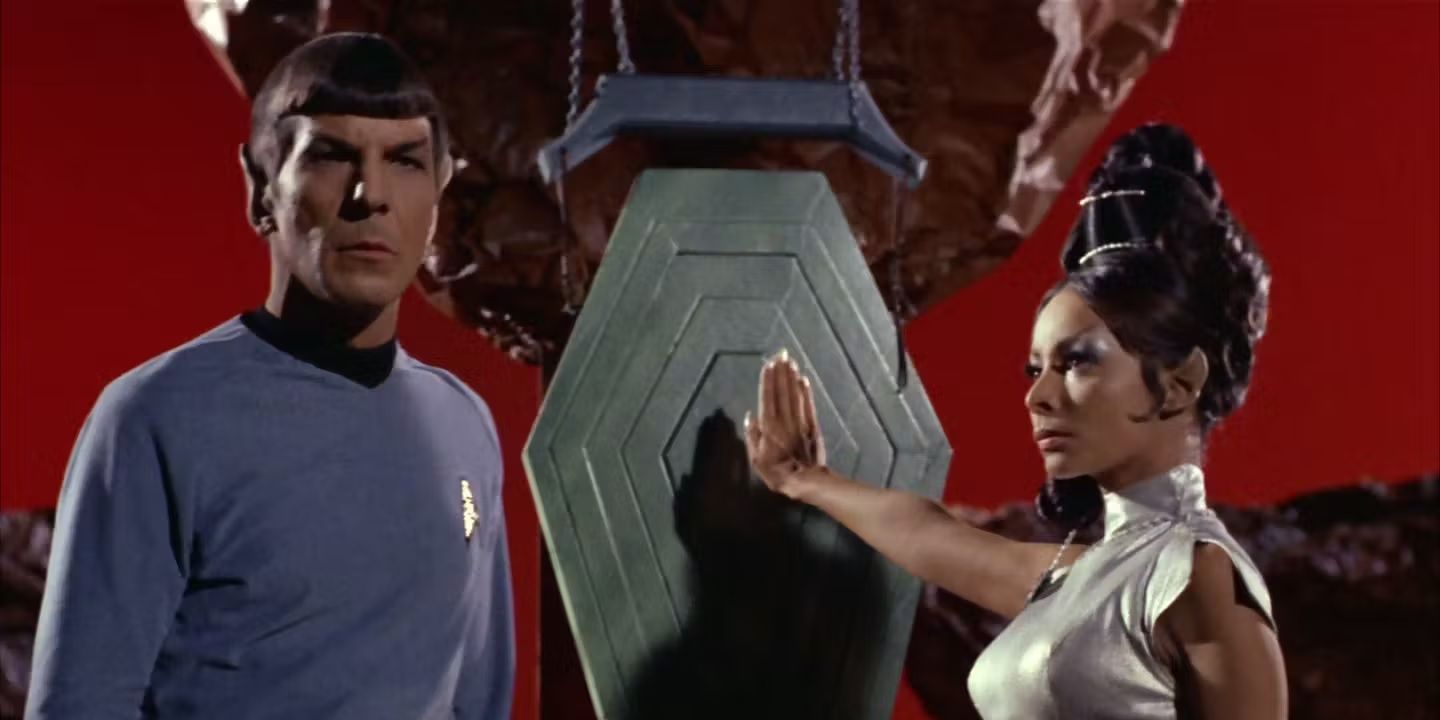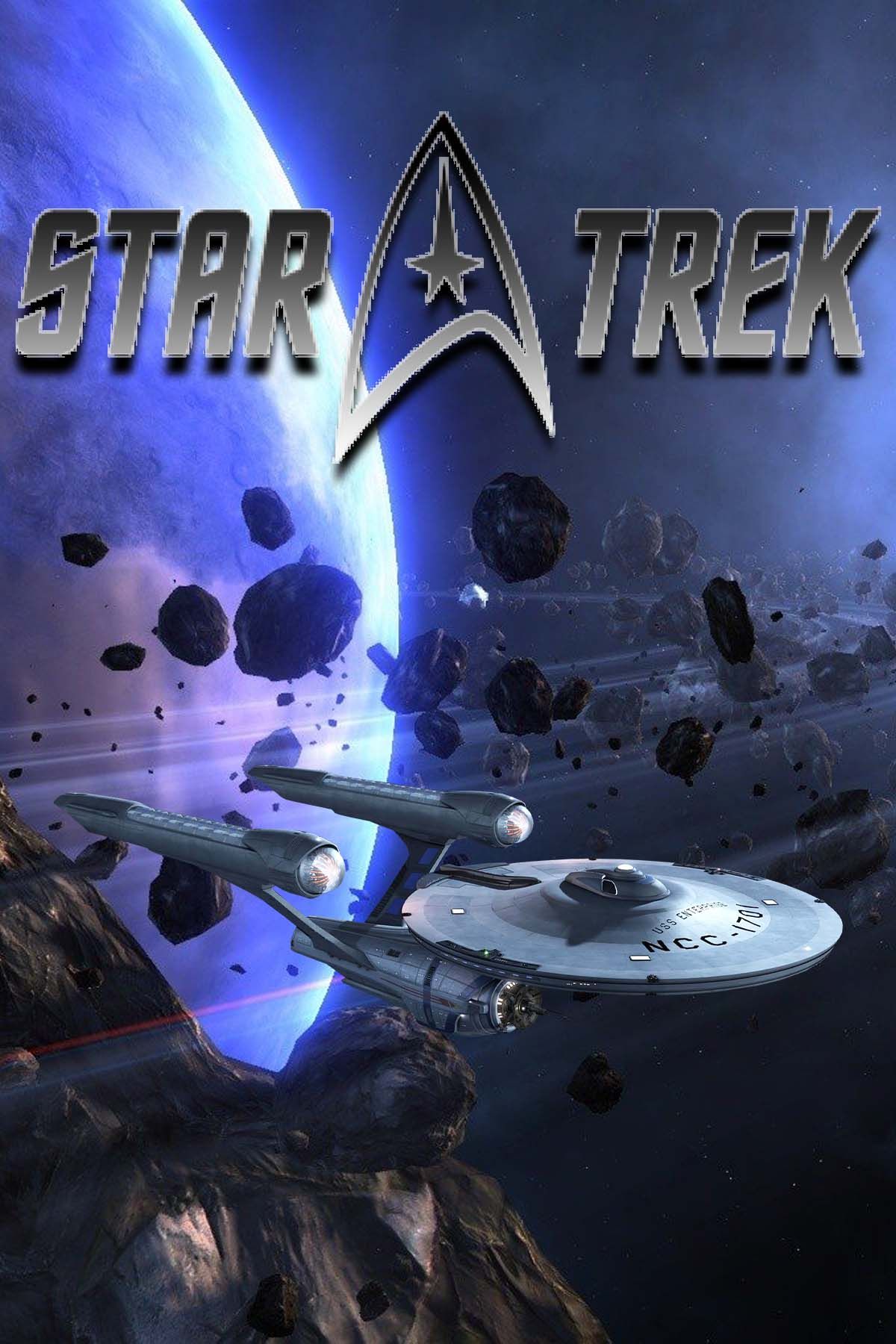Highlights
- Vulcans' pursuit of logic often leads to conflict with emotional races, but they can display illogical behavior themselves.
- Vulcans' initial reluctance to share technology with Earth was later seen as illogical, as humans played a key role in saving the galaxy.
- Vulcan security systems need rethinking, as seen in the Helios Machine incident, where the device fell into the wrong hands.
Star Trek's Vulcans are well known for their green blood, pointed ears, and relentless pursuit of logic. Characters like Spock, Tuvok, and T'Pol have fascinated viewers since the franchise debuted in 1996. Hailing from the planet Vulcan, the logical civilization is one of humanity's greatest allies in the Star Trek universe, and an integral part of the United Federation of Planets.
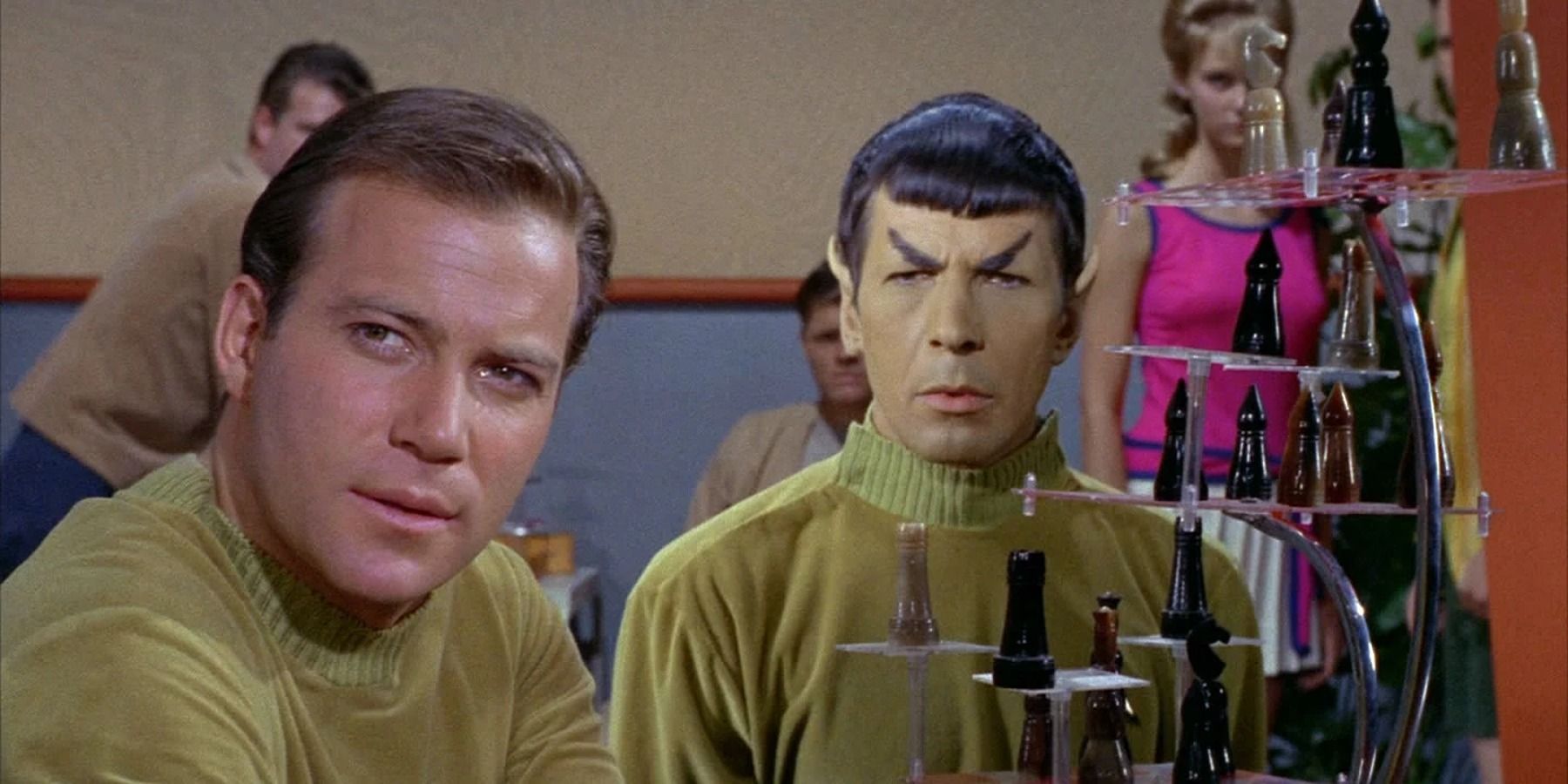
Star Trek's Tri-Dimensional Chess, Explained
No Star Trek redshirts were harmed in the making of this chess variant – well, maybe a pawn or two.
The Vulcans' logic often brings them into conflict with the galaxy's more emotional races. The Original Series generated conflict between Spock and the passionate Doctor McCoy (often to humorous effect), while Star Trek: Voyager paired the unflappable Tuvok with the Jar Jar Binks-like Neelix in several episodes. However, even the advanced Vulcans are known to slip up, with the species occasionally displaying some downright illogical behavior.
8 Solok's Feud With Sisko
Star Trek: Deep Space 9
Star Trek: Deep Space Nine
- Release Date
- January 3, 1993
- Creator
- Rick Berman, Michael Piller
- Number of Episodes
- 176
Although Star Trek: Deep Space 9 is known for its darker themes and galaxy-spanning conflicts, there are times when the series indulges in more lighthearted adventures. Season 7's "Take Me Out to the Holosuite" adds some much-needed levity to the show's final season by pitting the crew of Deep Space Nine against Captain Solok's baseball team. Solok is an accomplished Vulcan with a grudge against Sisko, and Vulcan plans to hit the Emissary where it hurts by beating him at baseball.
The physically superior Vulcans easily outclass Sisko's ragtag team, but Sisko's "Niners" are nonetheless able to enjoy the experience of scoring a single point. Their celebration frustrates Solok, who accosts Odo, the game's referee. This angry outburst results in Solok's disqualification, which is made doubly ironic by the fact that his team is named "the Logicians".
7 Early Relations With Humanity
Star Trek: Enterprise
Star Trek: Enterprise
- Release Date
- September 26, 2001
- Creator
- Rick Berman, Brannon Braga
- Number of Episodes
- 98
While the Vulcans' arrival on Earth is shown to occur in 2063 in Star Trek: First Contact, the initial relationship between Earth and Vulcan is a fragile one. Many humans, including Captain Archer, feel that the Vulcans are holding the human race back by refusing to share their technology; the Vulcans, meanwhile, claim that the human race must mature before it can be allowed to explore the galaxy.
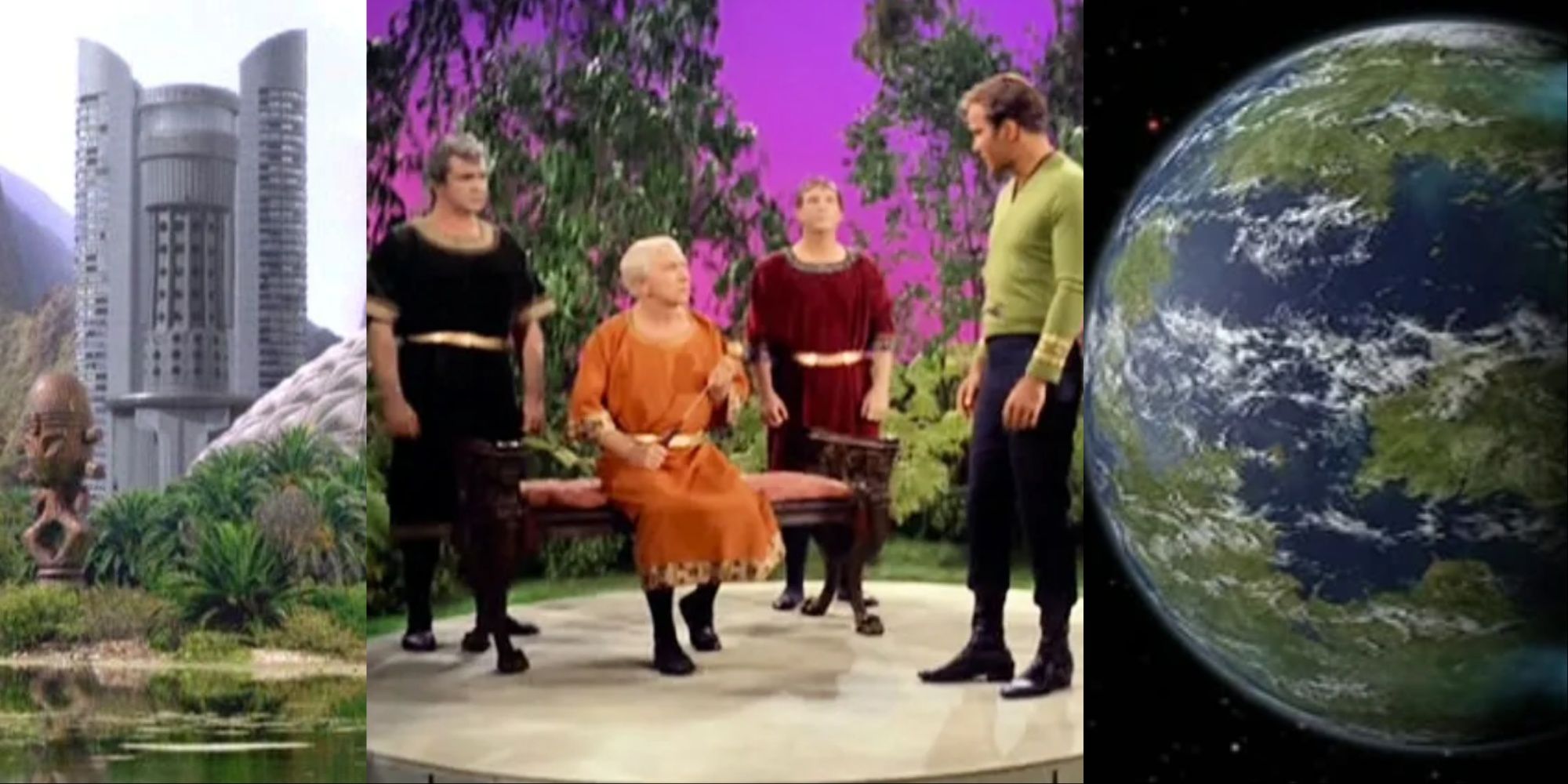
Star Trek: 7 Worst Planets To Live On
Exploring strange new worlds in Star Trek isn't always exciting, and sometimes Starfleet finds the worst planets they could live on.
Although the Vulcans' reluctance appears to make sense, hindsight shows it to be illogical. It is thanks to the actions of the human race that many massive threats are foiled, such as the Xindi, while Earth also lays the groundwork for the Federation, an alliance that brings peace and prosperity to billions within Star Trek's universe.
6 The Helios Machine
Star Trek (2013 Video Game)
Star Trek
- Released
- April 23, 2013
- Developer(s)
- Digital Extremes
- Genre(s)
- Third-Person Shooter , Action , Sci-Fi
The much-maligned Star Trek (2013) is often regarded as one of the franchise's worst forays into the video game medium. Critics complained about awkward controls, graphical issues and bugs, and boring gameplay. In addition to these myriad flaws, the game's plot also features one of the Vulcans' biggest tactical blunders.
The game takes place in the Kelvin timeline and sees the Vulcans using a terraforming device, the Helios Machine, to create a new home for themselves. Despite warnings from some members of the research team, the Vulcans seem to overlook the fact that the device has the potential to destroy as well as to create, and really only have themselves to blame when it is stolen by the dastardly Gorn. Luckily, the Gorn are stopped by Kirk and Spock before they can unleash the Helios Machine's catastrophic power, but the fact that it was allowed to fall into the wrong hands in the first place suggests that the Vulcans need to rethink the logic of their security systems.
5 T'Pau and the Earth–Romulan War
Star Trek: Enterprise Novels
Star Trek's expanded universe has allowed writers to fill in the most important gaps in the franchise's canon, such as by offering origin stories for classic foes, tying up loose plot strands, and continuing important plotlines even after shows have come to an end. The cancelation of Star Trek: Enterprise after just four seasons robbed the show's writers of the chance to explore the Earth–Romulan War first referred to in The Original Series. Luckily, the franchise's novelists were on hand to continue the narrative–with mixed results.
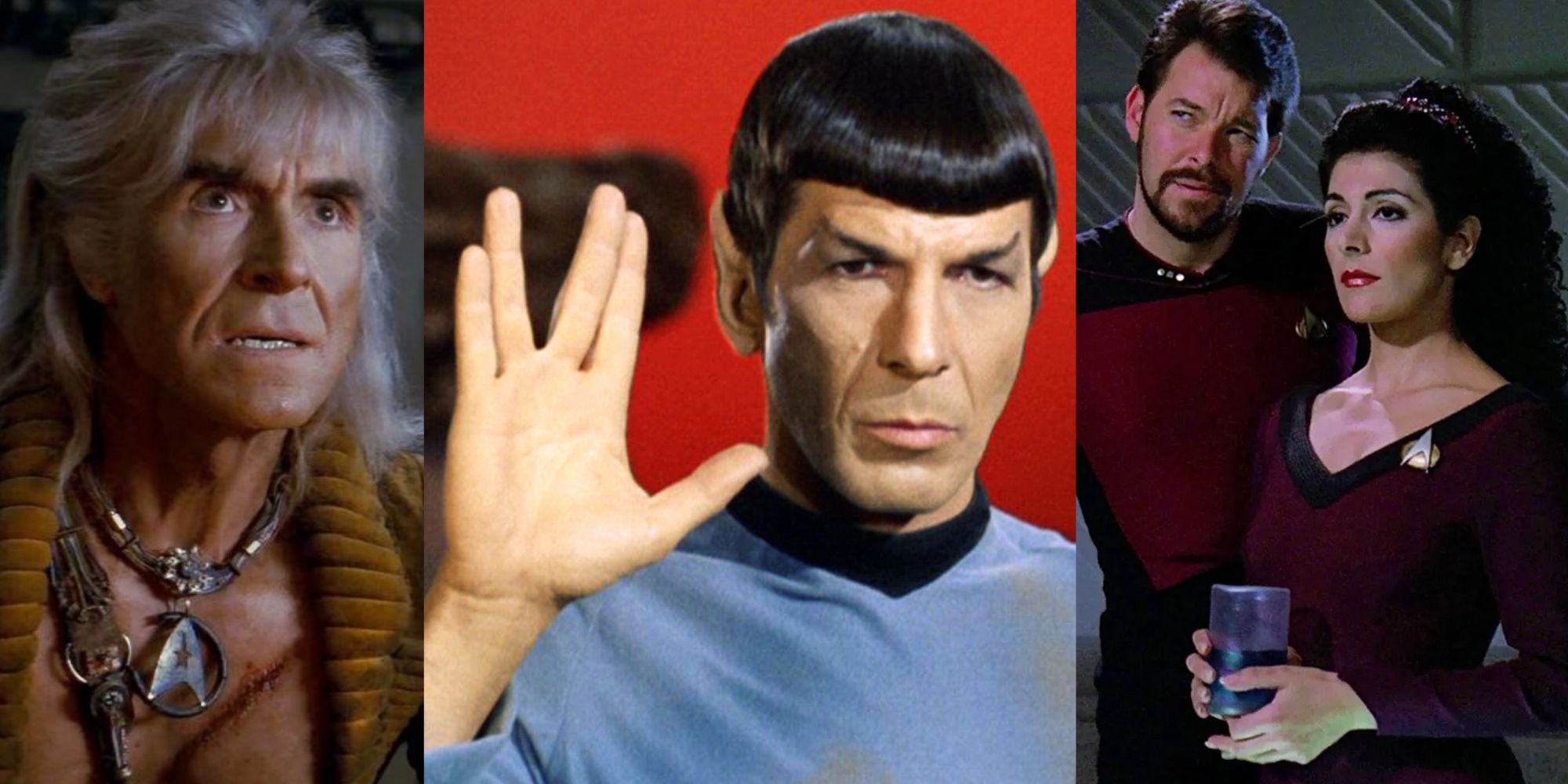
7 Best Star Trek Novels, Ranked
With so many stories about the beloved series, Star Trek, it can be hard to pick the best novels, but here are some of the top contenders.
Perhaps the most frustrating element of these novels is T'Pau, a character introduced in The Original Series as a notable figure in Vulcan history. However, her decision to keep Vulcan out of the Earth–Romulan War (she fears that the conflict will reignite the Vulcans' past violence) nearly results in the complete destruction of the human race, jeopardizing the nascent Federation. While her intentions may have been honorable, T'Pau's actions are far from logical.
4 Spock and the Omicron Spores
Star Trek: The Original Series
Star Trek: The Original Series
- Release Date
- September 8, 1966
- Creator
- Gene Roddenberry
- Number of Episodes
- 79
Spock's half-human heritage means that he is far from the most logical of Vulcans, but, for the most part, the Enterprise officer maintains his father's cold demeanor. However, there are exceptions to this rule, such as in the episode "The Other Side of Paradise", in which exposure to alien spores causes the usually stoic Spock to smile, laugh, and fall in love. Ironically, it is the passionate Kirk who is best able to resist the spores' influence, allowing him to free Spock from their control.
Spock reflects that his possession by the spores has not been an entirely negative one, as it allowed him to experience true happiness. This suggests that while Vulcan logic can provide intelligent solutions to problems, its restricted nature can also be a drawback.
3 Sybok's Mission
Star Trek 5: The Final Frontier
Star Trek V: The Final Frontier
- Release Date
- June 9, 1989
- Director
- William Shatner
- Runtime
- 106 Minutes
Long before Star Trek: Discovery introduced the previously unmentioned Michael Burnham into the Spock household, Star Trek 5: The Final Frontier featured the first of Spock's previously unmentioned siblings, Sybok. Unlike Spock, Sybok is entirely Vulcan, although his biology does not prevent him from living a life that is the antithesis of conventional Vulcan teachings.
Rather than following the path of logic, Sybok becomes obsessed with locating and freeing an entity that he believes to be God. He hijacks the Enterprise-A in an attempt to do so, but, although his illogical quest does bring him face to face with the entity, he is forced to conclude that he is mistaken as to its true nature. Sybok's misguided mission ends with his death, as he sacrifices himself to help the crew of the Enterprise escape.
2 T'Pol's Trelium-D Addiction
Star Trek: Enterprise
The decision to cast Jolene Blalock as T'Pol in Star Trek: Enterprise was no doubt an attempt by the producers to recapture the sex appeal that Jeri Ryan's Seven of Nine had brought to the preceding Star Trek: Voyager. However, as with Seven of Nine, the character of T'Pol was able to grow beyond her eye candy origins and emerged as one of Enterprise's most interesting characters. This development was facilitated by this Vulcan's addiction to trillium-D in Enterprise's third season.
The Enterprise NX-01 requires the mineral in order to safely traverse a dangerous region of space; however, Vulcan exposure to the substance causes irrational behavior. Although T'Pol is able to overcome her dependence, she is warned that the change to her brain chemistry is permanent—she will never again be entirely logical.
1 Pon Farr
Star Trek: The Original Series
The second season of The Original Series opens with "Amok Time", an episode that provides a deep dive into both Vulcan culture and Spock's biological drives. The Enterprise officer is undergoing pon farr, a biological urge that forces Vulcan males to mate every seven years or else die. Pon farr is accompanied by intense mood swings and chemical imbalances, making it difficult for Vulcans to think logically.
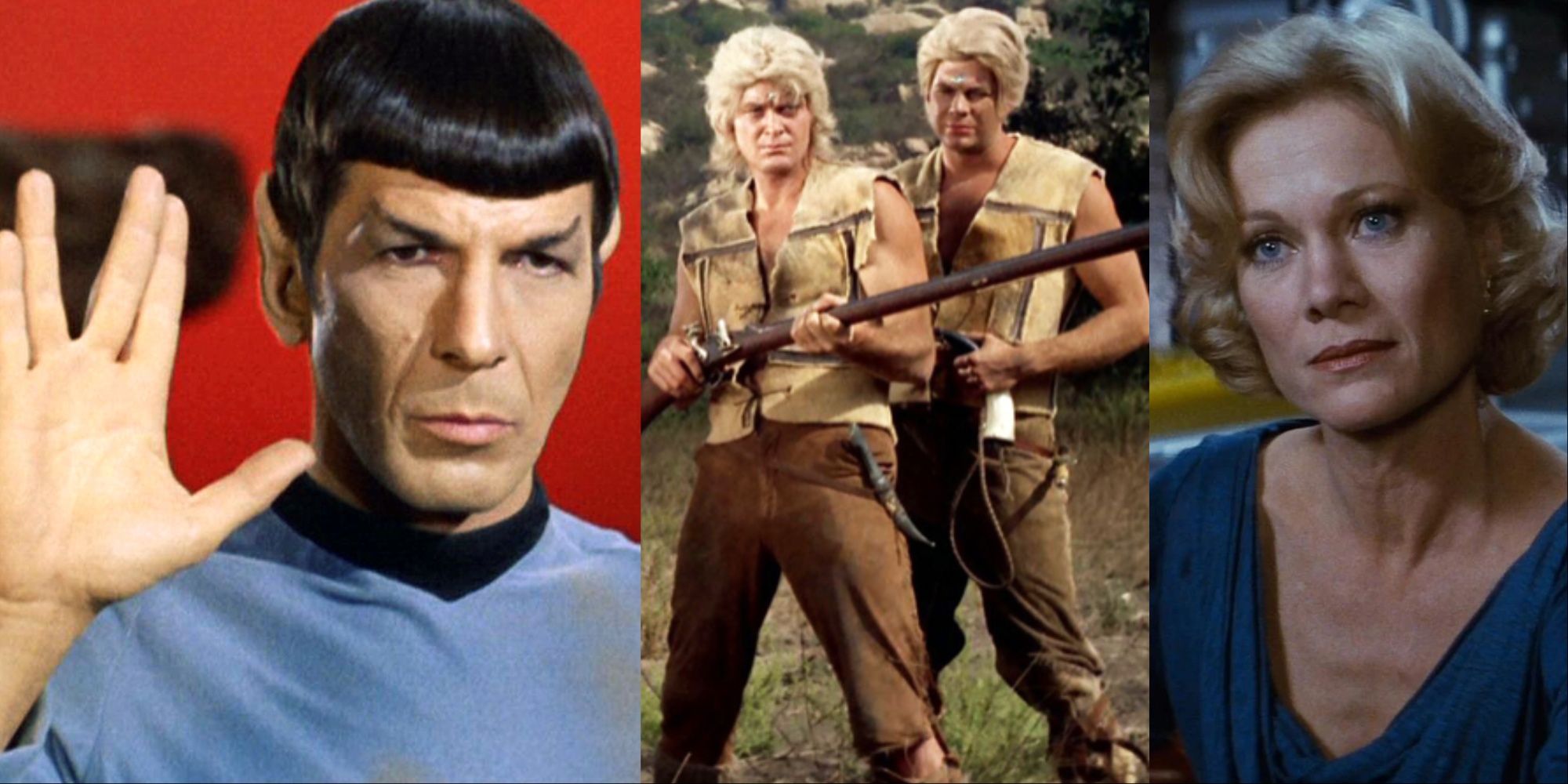
Star Trek: James T. Kirk's Best Friends, Ranked
James T. Kirk is a rather charismatic Star Trek captain, so it's no surprise he has some great friends.
The concept of pon farr also features in Voyager and Enterprise. Tuvok, stranded in the Delta Quadrant, is unable to bond with his wife when he enters pon far, necessitating the creation of a realistic holodeck program to satisfy his urges. Enterprise takes a more salacious approach, with a rare microbe causing resident Vulcan T'Pol to lust after the crew of the Enterprise NX-0 until a cure can be found.

